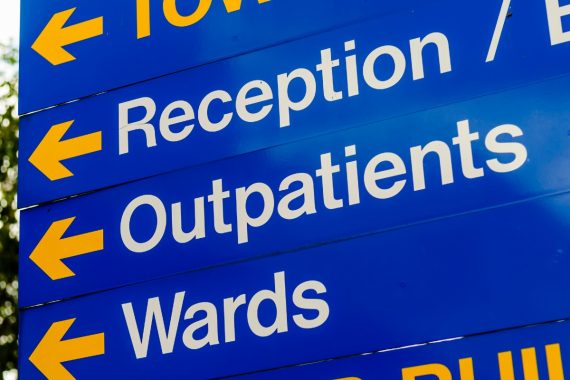GPs will not be expected to host ‘Super Saturday’ clinics in a bid to tackle elective waiting lists, NHS England has told Pulse.
It follows an announcement for £160m to be spent on a range of initiatives for 17 ‘accelerator sites’ to tackle waiting lists for elective operations.
The three-month programme will trial several projects including one-stop testing facilities, greater access to specialist advice for GPs, AI to prioritise patients, virtual wards and home assessments, 3D eye scanners, at-home antibiotic kits, and extending operating hours.
Among the proposals are ‘Super Saturday’ clinics – where multi-disciplinary teams come together at the weekend to offer more specialist appointments.
But there seemed to be some confusion over how such clinics would work, with the BMA warning that ‘the idea of GPs providing specialist clinics, or “super Saturdays”, also shows a grave lack of understanding of the rocketing workload and demand already facing GPs’.
When asked for more detail, NHS England said that it had never said that GPs would be involved.
The additional funding comes as the latest NHS performance figures show a waiting list of a record five million patients. At the end of March 2021, 64.4% of patients waiting to start treatment were waiting up to 18 weeks far below the 92% standard.
Other figures from NHS England showed that the NHS was making good progress in recovering from Covid-19 with elective activity was already at four-fifths of pre-pandemic levels and a record 230,000 people referred for urgent cancer checks seen in March.
The BMA, which has previously warned that clearing the referral backlog could take a decade, said the £160 million funding for the initiatives was a small proportion of what was actually needed and did not address fundamental problem of workforce shortages and burnout among staff.
Dr Chaand Nagpaul, chair of the BMA said NHS England and the Government should be focusing on a ‘credible strategy’ for retaining the workforce and ensuring exhausted staff aren’t pushed even further than they have been already.
‘Even if the money being promised was enough to fund the care for all those who are waiting, those patients face being treated by an exhausted and depleted workforce; a workforce that has not had any kind of respite in the past 14 months.’
He said technological innovation should be used to address ‘some really basic and simple issues’ currently creating a huge burden on general practice such as enabling electronic prescribing and direct access to community diagnostics for secondary care, he said.
In addition, local systems should be set up to deal with the huge numbers of patients are taking up GP and hospital clinician time chasing up their appointments and wanting to know when they will be treated.
‘What we need to see is a workable plan that sufficiently supports the needs of the health service as a whole, and it is imperative that the allocation of funding and resources is reasonable and caters to the needs of primary, secondary and community care – all of whom have been completely stretched in the past year,’ he said.
Amanda Pritchard, NHS chief operating officer, said the additional support provided through the accelerator sites would help create a blueprint for continuing the progress already made in a way that wouldn’t put extra pressure on staff.
Tim Gardner, senior policy fellow at the Health Foundation, said the NHS was beginning to show promising signs of recovery but the latest figures highlight the significant and growing backlog in routine hospital care.
‘Only by addressing significant and long-standing workforce shortages and making substantial investment in infrastructure and technology, will the government avoid the political and human cost of growing numbers of people waiting too long for the care they need,’ he added.
The full list of the NHS Integrated Care Systems (ICSs) set to receive the £160m funding is:
- South Yorkshire & Bassetlaw
- North East & Cumbria
- Lancashire and South Cumbria
- Coventry and Warwickshire
- Nottinghamshire
- Bedfordshire, Luton and Milton Keynes
- Suffolk & North East Essex
- North Central London
- Surrey Heartlands
- Hampshire & Isle of Wight
- Devon
- Bristol, North Somerset and South Gloucestershire
- A coalition of specialist children’s hospitals including Birmingham Women’s and Children’s Hospital Trust, Alder Hey, Sheffield Children’s, Royal Manchester Children’s Hospital and Great Ormond Street Hospital.
Source: NHS England
Pulse July survey
Take our July 2025 survey to potentially win £1.000 worth of tokens













Who will be the first exhausted overworked sucker of a GP to take part in this all singing —all dancing charade?
Unless they properly sort the AA problem, i.e remove it, then I suspect very few extra clinics/lists will be getting done…
Greater access to specialist advice for GPs, otherwise known as “we won’t see them”.
Patients are demanding access we cannot provide and referrals which are being rejected. Not an easy time right now!